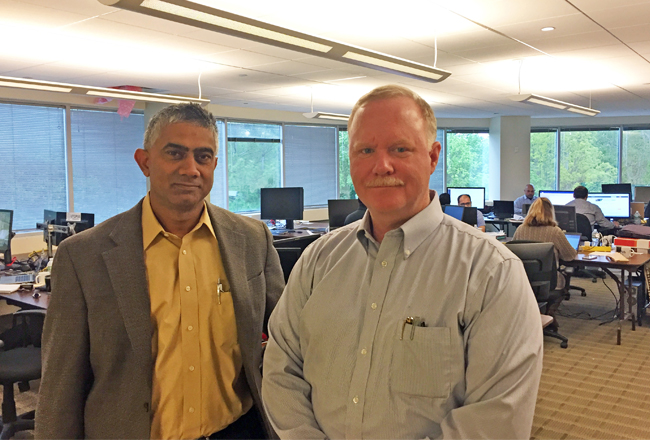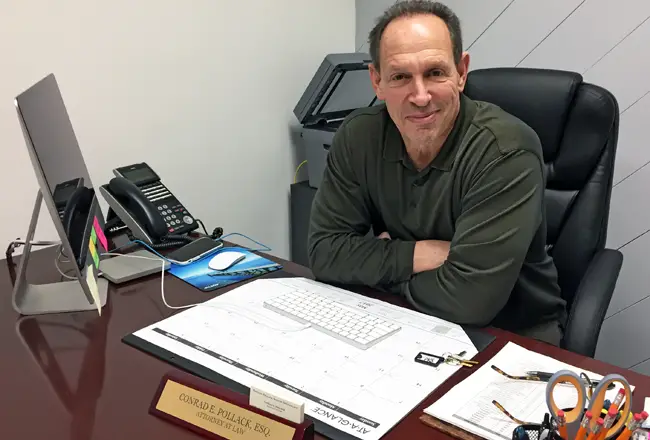
There”™s a new world order in energy, says Chandu Visweswariah, president and CEO of Utopus Insights Inc., an energy analytics startup in Valhalla.
Renewable energy is becoming more economically viable and growing rapidly worldwide. “That, however, will bring with it its share of technical problems,” Visweswariah said. “You are dependent on wind, you are dependent on the sun. So there is what we call intermittency in the availability of energy. You need tools and intelligence to plan your energy around this intermittency.”
Utopus Insights is creating those tools.
“The goal of our company is to really be the leading provider of this new intelligence or new software that is necessary for utilities and energy systems,” said Visweswariah.
Visweswariah previously directed the Smarter Energy Research Institute at IBM”™s Thomas J. Watson Research Center in Yorktown Heights. He was named an IBM Fellow in 2013.
The company, which launched May 16, is based in Westchester and India. It was spun out of work from IBM”™s Smarter Energy research team and was launched as a partnership between IBM and Vermont Electric Power Company Inc.
Energy orchestration
Utopus”™ slogan is, “Orchestrating the future of energy today.” Its software platform, MaestrOS, offers analytical tools and insights that can help reduce uncertainty in the electrical grid and guide decision making for a range of potential clients in the energy industry.
“If you put the supply of energy and the demand of energy together with a model of the grid, you are able to start to do things much more intelligently,” Visweswariah said.
Within the MaestrOS platform, the company offers HyperCast. It”™s an application that combines super-localized weather forecasting with machine learning to predict the output of renewable energy generation resources, such as solar and wind, along with demand and load on the grid.
To predict renewable energy production, HyperCast needs to be able to predict the weather down to the kilometer and in 10-minute increments.
“We”™ve got a wind turbine here, or a farm here, and we want to know, what”™s the wind at the hub height?” said Ron Ambrosio, chief scientist for Utopus Insights. “Well, that means we need to be able to differentiate that weather model at a finer grain than the traditional National Weather Service.”
“People think of the wind as fickle, people think of clouds as fickle, except we are going to have future energy systems dependent on these things,” Visweswariah said. “And the truth is they are not fickle. They are obeying the laws of physics.”
Utopus Insights”™ GridPulse application models the current condition of the many individual pieces that make up the electrical grid and predicts each part”™s lifespan and probability of a failure. It can calculate the “electrical age” of the transformers, capacitors and even wires and wooden poles that help keep electricity flowing through the grid, helping a utility to maximize capital investments.
Advantaged startup
Utopus Insights doesn”™t fit many startup stereotypes. It”™s far removed from any folksy garage-based origin story. The company launched with the backing of established companies and leadership with decades of experience in the industry. That”™s why Visweswariah calls it an “advantaged startup.”
“This is a much more serious venture,” he said. “We”™re already up to 30 people. We have 14 PhDs, dozens of patents, many more in the pipeline, industry connections, some of the world experts in machine learning, data mining, weather modeling and so on.”
Visweswariah said the company is IBM”™s first entrepreneurial startup. About two-thirds of Utopus Insights”™ staff are former IBM researchers.
Ambrosio was an IBM distinguished engineer and chief technology officer for IBM”™s Smarter Energy research. Spinning out the research done at IBM, he said, allows the team to use its experience with a much nimbler approach.
Visweswariah added, “We can be laser-focused on the energy industry, whereas IBM is a much broader player.”
IBM provided source code and dozens of current and pending patents, along with equipment such as laptops and servers, for an equity stake in the company.
The work from IBM that Utopus Insights will build on stretches back 15 years. That includes three years of work with Utopus Insights”™ main investor, VELCO, an electric transmission company owned by Vermont”™s electric distribution companies.
VELCO is also a strategic partner of the startup. Based in Rutland, Vermont, the energy transmission company worked with IBM researchers in the past on a range of topics, including managing distributed energy resources by forecasting weather and renewable generation and demand.
Boston Consulting Group is a minority investor and led a feasibility study for IBM before IBM and VELCO launched Utopus.
Utopus Insights has joint research and development agreements with VELCO and with the federal Department of Energy”™s Bonneville Power Administration in the Pacific Northwest.
The company has a seven-year lease on a newly renovated, 4,400-square-foot space at 115 Stevens Ave. on the Mount Pleasant Corporate Campus in Valhalla. The company also has an office in Bengaluru, India.
Energy utopia?
The energy analytics market is expected to reach $9 billion by 2020, according to the feasibility study completed for IBM. Large companies such as GE, ABB Group and Schneider Electric have launched energy analytics products and a number of startups have entered the field as well.
Utopus Insights”™ platform could be a fit for utilities, independent power producers, energy traders, renewable-farm investors and independent system operators, according to Visweswariah. “It”™s a huge opportunity and our financial model will be wildly successful if we even capture a small sliver of it,” he said.
Beyond financial success, both Visweswariah and Ambrosio said Utopus Insights has a role to play in the future of energy: one where the world transitions to an optimized power grid run on distributed renewable energy. That”™s what pushed them to give up prestigious titles at one of the world”™s largest tech companies to launch a startup.
“We are believers in this transformation that is going to take place,” Ambrosio said. “Not may,” he emphasized, “will take place.”
And the company”™s industry connections and expertise position it to “influence the direction this future vision is moving toward,” Ambrosio added.
That vision is embodied in the company”™s name. Visweswariah said some people have interpreted Utopus as a portmanteau of “utility” and “opus.” Others, he said, read it as an opus that will enable an energy utopia. Either interpretation is fine with him, he said.
When the company spun off from IBM, it created a mission vision called the “Utopian Values.” Visweswariah also begins each email to Utopus staff with the greeting, “Dear Utopians.”
“And it was total coincidence,” Ambrosio said, “that we ended up in Valhalla.”






















